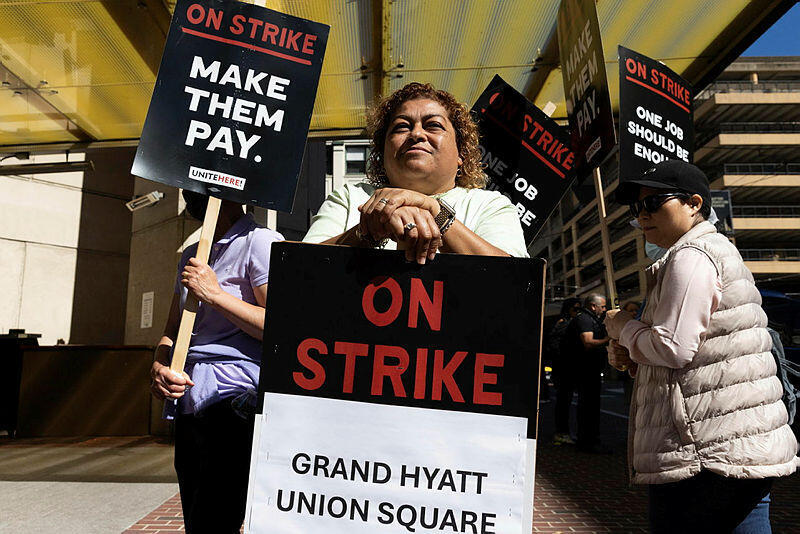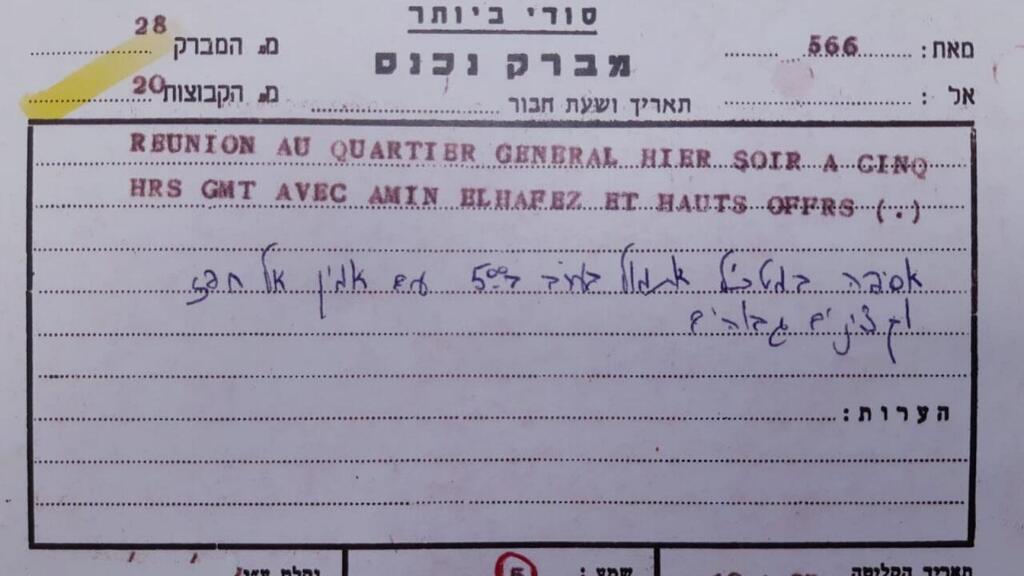Getting your Trinity Audio player ready...
Israel’s Mossad security agency revealed for the first time on Monday how one of its most prominent spies, Eli Cohen, was captured in Syria nearly 60 years ago.
The agency’s chief David Barnea participated in the inauguration of the National Museum named after Cohen in Herzliya, central Israel. During the ceremony Barnea revealed the last telegram that Cohen sent on the supposed day of his capture, January 19, 1965.
2 View gallery


Yesenia Salas stands as hotel workers picket outside the Grand Hyatt hotel Monday
(Photo: AP/Benjamin Fanjoy)
In this message the s
גכגעמיג
עגכעמע
כיעיגל נמהמ מנמבה מנב
כגכעדכעמ
GVGגGא
נמהמ מנמבה מנב
כגכעדכעמ
GVGגGא
 נמהמ מנמבה מנב
כגכעדכעמ
GVGגGא
נמהמ מנמבה מנב
כגכעדכעמ
GVGגGאpy reported on a meeting held at the Syrian general staff the night before his arrest with the participation of Syrian President at the time Amin Al-Hafiz. Barnea added the reason for Cohen's arrest “has always been subject to controversy” with speculations about the legendary spy being pushed too far by his curators, which led to additional risks.
“I am taking advantage of the sanctity of this place and this special event to reve
hjgh
(hjkgh)
al for the first time, and this after deep research that was done recently, that Eli Cohen was not caught because of the amount of broadcasts he did, or because of the pressure exerted on him from headquarters to broadcast with great urgency. Eli Cohen was caught only because his broadcasts were picked up by the enemy,” Barnea said.
"Eli Cohen was one of the best fighters. He continues to influence us and instill in us a fighting spirit, courage, values and dedication - also from the depths of history. He is a source of inspiration not only for today's fighters, but for all Mossad employees, in their various roles,” the Mossad chief added.
The telegram, which is the last message that Cohen sent “as a free man” before he was tried and executed by the Syrian authorities, will be transferred to the state archive with its copy displayed at the new museum.
The Mossad chief vowed to continue to uncover details about Cohen’s operations in Syria in 1961-1965 and to work on bringing his remains to Israel for burial, which his family has been trying to do for decades.
First published: 14:37, 12.12.22






